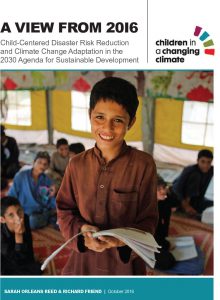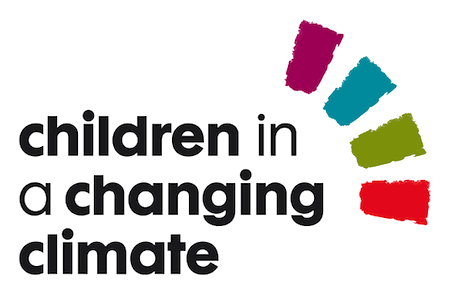It is now well established that children are disproportionately affected by shocks and stresses related to climate change, disasters, and conflict – and that these risks are becoming increasingly severe, complex, and intertwined across rural and urban geographies. At the same time, governments and non-governmental actors are recognizing the rights and capacities of children to tackle these threats, and to influence and indeed lead decision-making about their own development futures in a changing climate.
This paper evaluates how recent global negotiations on sustainable development can support child-centered disaster risk reduction (DRR) and climate change adaptation (CCA). It reviews six global agreements or processes that collectively compose the 2030 Agenda for Sustainable Development: The Sustainable Development Goals (SDGs), The Sendai Framework for Disaster Risk Reduction (SFDRR), The Paris Agreement on Climate Change, the Addis Ababa Action Agenda on Finance for Development (AAAA), the World Humanitarian Summit (WHS), and the Habitat III New Urban Agenda (NUA). It assesses what this Agenda means for child-centered DRR and CCA, using seven core pillars derived from key guiding charters developed by the Children in a Changing Climate (CCC) Coalition in consultation with children: The Children’s Charter for DRR (2011), Realising Children’s Rights in a Changing Climate (2013), and A Post 2015 Framework for DRR (2014).

